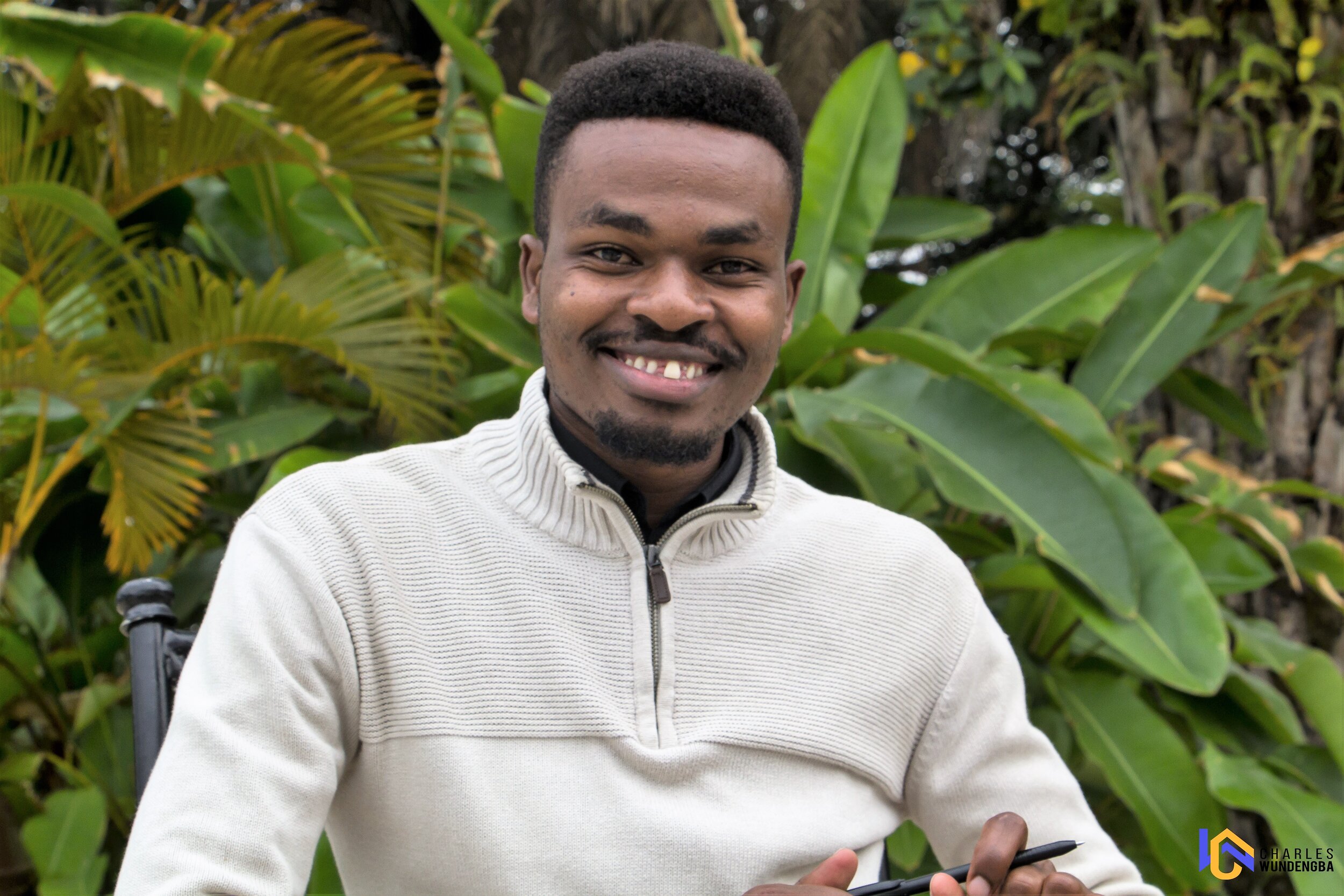Kaluki Paul Mutuku: "The biggest threat to our planet is our inaction.
“I remember how beautiful and green Kenya was when I was a kid,” Kaluki says. “We had plenty of water, productive crops. I would help my grandfather plant trees. That was when I fell in love with nature. But now, most of those beautiful sights are gone.”
Kaluki Paul Mutuku is a 27-year-old climate activist on a mission to restore that beauty to Kenya. Or as he says, “To put a smile on Mother Nature's face.”
Grassroots activism
Kaluki is the founder of Green Treasures Farm which aims to protect biodiversity in Kenya's countryside. Working with local women and young people, the project promotes tree planting, management of water resources and organic farming. Kaluki is also the Regional Director for Africa at Youth4Nature, a global youth-led organisation that mobilises young people to lead in nature and climate action.
Between 2016 and 2019, Kaluki led protests against the proposal to build Kenya’s first coal power plant in the coastal heritage town of Lamu. A long campaign of petitions, street marches, community engagement, student activism and online discussion finally reaped its reward when the government ruled in the activists' favour and cancelled the plant.
But while these victories mean a lot to Kaluki, he finds more satisfaction in grassroots community exchange and supporting new activists. “It's so rewarding to know that I've helped to influence individuals who become leaders themselves and organise action even when we aren’t there.”
Stay strong
As a kid, Kaluki admired the work of Professor Wangari Maathai, the mother of African environmental activism and the first African woman to win the Nobel Prize. Kaluki hopes to leave the world a better place, just as she did.
Kaluki also sees his own mother as a huge inspiration. A single parent to three boys, she made sure they went to university and remains his “number one cheerleader” to this day. He says he owes his strength of character and caring nature to her.
It's this character that helps him stay strong yet compassionate in what can be a tough fight, filled with obstacles. “I've seen well-coordinated campaigns fail. I've also watched sabotage from outside groups destroy campaigns.” The only solution, he says, is to plan for the worst while working towards the best. "It’s okay to have low moments, but the important thing is to pick yourself back up and focus on the future, learning from mistakes."
Kaluki faces criticism from those who believe he and his fellow activists are well-paid or that they are spreading lies. His response is to “sit down and share the facts.” He knows that he can't convince everyone, but this only encourages him to work harder. “If they see the results, then most likely they will change their mind,” he says.
But it's not climate change deniers, according to Kaluki that pose the biggest threat to our planet. “It’s the inaction of those of us who know what's right.” He calls on everyone to step outside of their comfort zones and take action to safeguard our planet.
No act too small
“Just start by doing something,” he says. “Nothing is too small when it comes to protecting nature and stopping the climate crisis.”
What's one simple thing we can all do to play our part? “Just do something for others. Plant a tree. Not to take shade in yourself but to give someone else the chance to enjoy its shade in the future.”
As you might imagine, Kaluki has a peaceful start to his day, expressing gratitude and sipping water from a reusable bottle. Often he'll tend to his kitchen garden, go for a jog, or practice yoga before reviewing his busy schedule. He unwinds by spending time laughing with his family or taking long walks in the forest.
Forests are his favourite place on Earth. “The diversity of trees, birds and other animals. The smells. The serenity.” He urges travellers to visit his native Kenya, where he's sure the warm welcome, diverse ecosystems and unique wildlife will win you over.
Sustainable futures
Most of Kaluki’s time is spent on local projects involving women and young people. He says activism has taught him the importance of an engaged community in a functioning society. "We need people to call out injustices and solve problems," he explains. Kaluki praises the UN secretary-general, António Guterres. “He shows us that working with marginalised and frontline communities is an important aspect of sustainable development.”
Following his first UNFCCC session at COP25 in Madrid, Kaluki has been taking everything he learned into his activism. He spent 2020 implementing nature-based restoration efforts in Africa, pursuing meaningful partnerships for youth, giving mentorship to schools through tree growing, organising knowledge sharing sessions, and advocating for action on nature and the climate.
“I know that I am here for a season and surely for a reason,” Kaluki says. But the most important thing is to “Be kind, always. And be the reason people believe in humanity.”
You can read Kaluki’s blog and learn more about his biodiversity conservation project, Green Treasures Farm. Follow Youth4Nature as they seek nature-based solutions to climate change.
Photos courtesy of Kaluki Paul Mutuku.

